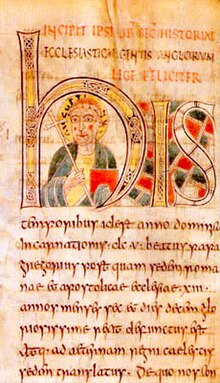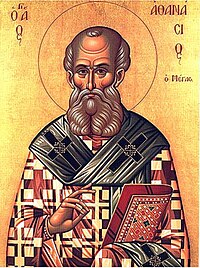
We are coming up to the feast of St Benedict on July 11 so don't forget the Novena to St Benedict!
And by way of a lead in to the feast, I've been getting a few comments on the blog of late that suggest a little reminder on the structure of the hours and key page numbers might be helpful, so herewith the first one on Lauds.
I'm not sure Lauds is really the best place to start, since it is the most complicated of all the hours (if you are a beginner, I strongly recommend starting with Prime and Compline, as these are the most straightforward with the fewest moving parts, make a nice morning and evening prayer, and provide a good way into learning the Office). Nonetheless, I'll take the hours in order.
Comments on ways to improve these summaries and make them more user friendly, or particular questions you would like to see covered, are welcome.
Fixed vs variable parts of the hour
The first thing you need to be clear on, I think, is which parts of the hour can and cannot change with the seasons or particular feasts. The table below summarises the various elements of Lauds in its three main versions - Sundays, feasts and weekdays.
For Sundays during the year, the key things to note are that:
- the canticle antiphon and collect are always of the particular Sunday;
- the hymn used depends on the season - there is a winter (Aeterne rerum Conditor) and summer (Ecce Iam Noctis) version; and
- although the Diurnal provides the 'festal' psalms under Sunday, these are only used on a few specified Sundays - the normal psalms of Sunday, as set out below are Psalms 50, 117 and 62.
For weekdays, the reason the table gets a bit messy is that some lower level feasts don't use the 'festal' psalms, but do change other elements of the hour (including, on occasion, the antiphons), and seasonal texts displace those 'of the day of the week' for large chunks of the year.
But on most days of the week after Pentecost (ie ones that are not feasts) the psalms, antiphons (including for the Benedictus), chapter, responsory etc are fixed for the particular day of the week - the only thing that changes is the collect, which is of the week.
The psalmody at Lauds
|
Sunday
|
Festal
|
Weekday
|
Opening prayers
|
Fixed
|
||
Psalm 66
|
Fixed
|
||
Antiphon:
|
Variable (normally alleluia)
|
||
Psalm 50+ Gloria
|
Fixed
|
Psalm 92+variable antiphon
|
Fixed +variable antiphon (normally of the day)
|
Psalm+Gloria
|
Psalm 117
|
Psalm 99+variable antiphon
|
Of the day +variable antiphon (normally of the day)
|
Psalm+Gloria
|
Psalm 62
|
Psalm 62+variable antiphon
|
Of the day +variable antiphon (normally of the day)
|
Antiphon
|
Variable (normally alleluia)
|
||
Antiphon for the canticle
|
Variable (normally Tres Pueri)
|
Variable
|
Variable - Of the day of the week
unless displaced by feast or season
|
OT Canticle
|
Benedicite Domino (no Gloria)
|
[Festal] canticle of the day of
the week with Gloria
|
Ferial or festal canticle of the
day of the week with Gloria
|
Antiphon
|
Variable (normally Alleluia)
|
Of the feast
|
Of the day of the week or feast
|
Ps 148+149+150+Gloria
|
Fixed
|
||
Antiphon
|
Variable (normally of the day unless displaced
by feast or season)
|
||
Chapter
|
Variable (normally of the
day of the week, unless displaced by feast or season)
|
||
Responsory
|
Variable (normally of
the day of the week, unless displaced by feast or season)
|
||
Hymn
|
Variable – summer winter and
seasons
|
Of the feast
|
Of the day of the week or season
|
versicle
|
Variable (normally of
the day of the week, unless displaced by feast or season)
|
||
Antiphon for the Benedictus
|
Variable – of the Sunday of the
year, day of the week or feast/season
|
||
Benedictus
|
Fixed
|
||
Antiphon
|
Variable
|
||
Closing prayers
|
Fixed
|
||
- Collect
|
Of the Sunday
|
Of the feast
|
Of the Sunday or day
|
- Commemoration (if applicable)
|
Of the feast
|
Of the feast or day (ie Lent or
Advent days)
|
Of the feast or day
|
Where to put your ribbons
LAUDS
|
‘Default’
texts
|
Opening
prayers – Deus…
|
MD
1
|
Psalm
66 – Deus miseratur…
|
MD
38, 58
|
Antiphons
|
of
day of the week or feast/season
|
Antiphon(s),
Psalm 50; 2 variable psalms; OT canticle; Laudate psalms Ps 148-150
|
Sunday,
MD 39
Festal
(for feasts), MD 44
Monday
- MD 59
Tuesday
- start MD 76
Wednesday
– MD 89
Thursday
– MD 102
Friday
- MD 118
Saturday
- MD 133
|
Chapter
|
See
in psalter as above or for season/feast
|
Short
Responsory
|
See
in psalter as above or for season/feast
|
Hymn
|
Of
the day of the week (pg nos above) or feast/season
|
Versicle
|
See
in psalter as above or for season/feast
|
Antiphon
for the Benedictus
|
Of
the day of the week/feast/season
[on
Sundays, of the week of the liturgical year]
|
Benedictus
|
MD
56, 73
|
Antiphon
for the Benedictus
|
M-S
of the day of the week; Sun of the week in the calendar
|
Closing
prayers
|
MD
57
|
- Collect
|
Of
the week of the liturgical year or day/feast
|
- Commemoration of
the saint or day
|
Canticle
antiphon, versicle and collect said immediately after the collect of the day
|












